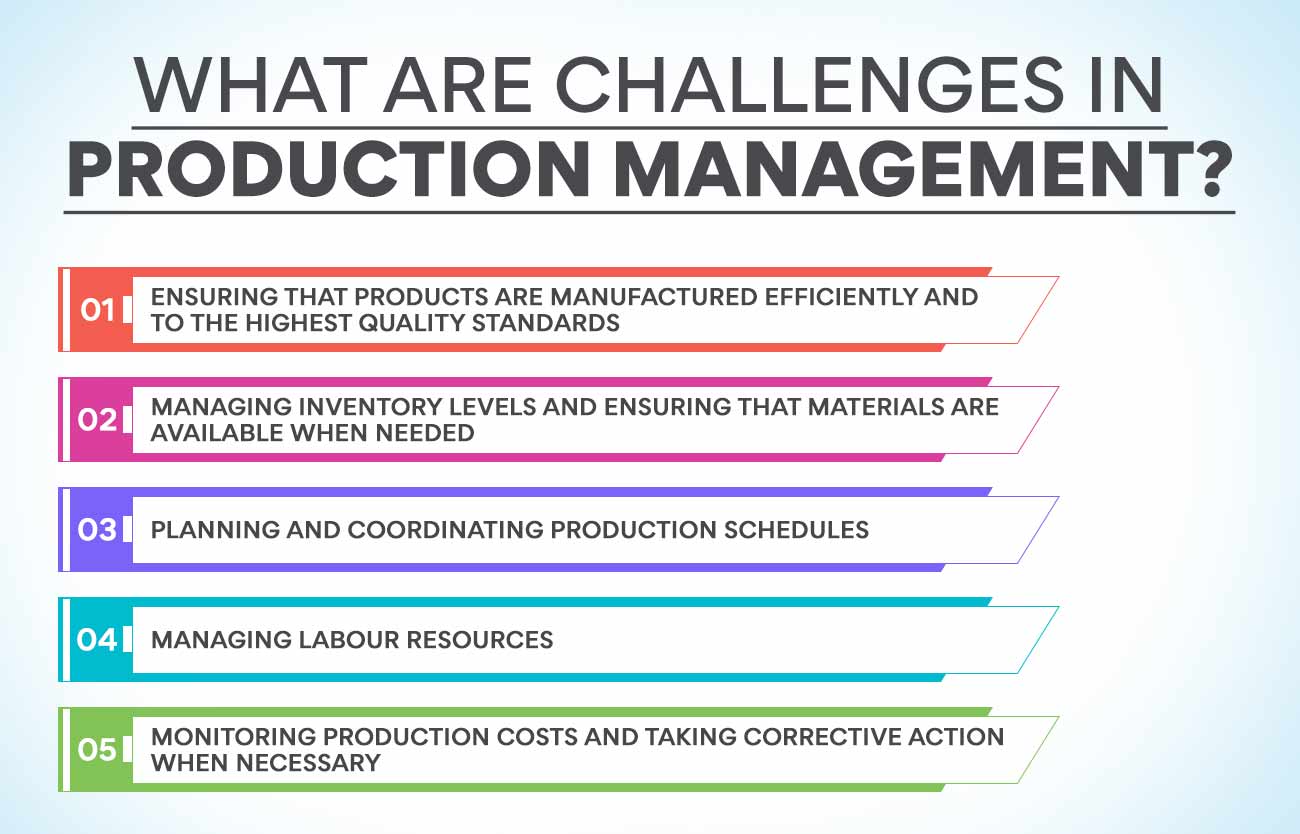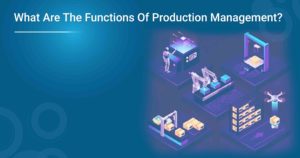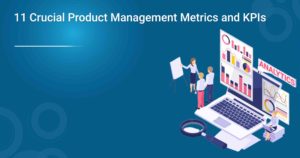Every company has a production process, whether manufacturing physical goods or providing services. And every production process needs to be managed in some way. But what exactly is production management? What are Production management functions? This blog post will explore the production management functions and concepts relating to it. We will also discuss how production managers work with other organisation members to ensure that the production process runs smoothly and efficiently. To learn about production management, read on!
Selecting The Right Product
You need to consider plenty of things when it comes to selecting the right production management software for your business. The first is to determine the specific needs of your business and what functions you require the software to perform. Make a list of these requirements and compare them against the features offered by different software programs.
It’s also important to consider the size of your business when selecting production management software. Small businesses have different needs than larger businesses, so make sure the software you choose is appropriate for the size of your company. Smaller businesses can get away with less sophisticated (and less expensive) software, while larger companies will need something more robust and feature-rich.
Another essential factor to consider is the ease of use. Production management software can be complex, so you’ll want to ensure the program you select is user-friendly and easy to navigate. Many software programs offer free trials, so take advantage of this opportunity to test out a few options before making your final decision.
Preparing The Design
Production management is organising and controlling the production of goods or services. It includes the planning, coordinating, and managing of all resources and activities necessary to produce a given product or service.
Production management has three main functions: planning, control, and coordination.
Planning is setting objectives and determining the course of action to achieve those objectives. Coordination is the process of aligning all resources and activities to achieve objectives. Control is the process of monitoring progress and taking corrective action when necessary.
Also Read: What Are The Stages And Examples Of A Product Lifecycle?
Production Planning
Production planning is about creating a plan for the production of goods or services. Production planning aims to ensure that the production process is efficient and effective and that the finished product meets the customer’s needs. The production plan includes the resources needed to produce the goods or services and the timeline for production.
Several different factors must be considered in production planning, including demand forecasting, capacity planning, inventory management, and scheduling. Production planning is an essential part of supply chain management, as it ensures that all of the necessary resources are available when they are needed.
Production Control
Production control is the process of monitoring and regulating the production process to ensure that goods are produced efficiently and effectively. It involves planning, scheduling, and coordinating the activities of workers and machines.
Production control is essential to ensuring that products are of high quality and meet customer demands. It helps to avoid waste, optimise resources, and maintain a consistent output level. Good production control can help to improve productivity, increase efficiency, and reduce costs.
Quality And Cost Control
Production management has many different aspects, but quality and cost control are the most important aspects. Ensuring that products are made to a high standard and within budget is important to the success of any business.
There are several ways to control quality and costs in the production process. One way is to set quality standards that all products must meet before release. The company or an external body, such as a regulator, can set these standards. Once these standards are in place, it is up to the production team to ensure they are met. It usually involves regular testing and inspection of products during the manufacturing process.
Another way to control quality and costs is through feedback loops. This means constantly collecting data on products’ performance and using this information to improve manufacturing. It can help identify areas where costs can be saved, or quality needs improvement.
Feedback loops can also be used to monitor customer satisfaction levels. This data is used to improve the design of products or the manufacturing process itself.
To effectively control quality and costs, production managers need to have a good understanding of both areas. They must work closely with other departments, such as design, engineering, and marketing, to ensure that products meet customer expectations.
Inventory Control
Inventory Control is managing inventory levels to ensure that businesses have enough stock to meet customer demand while minimising excess inventory and associated costs. Businesses use various methods to manage inventory levels, including Just-In-Time (JIT) production, Kanban systems, and Economic Order Quantity (EOQ) models.
Maintenance and Replacement
After a product is designed and produced, it must be maintained and, eventually, replaced. Production management ensures that these tasks are carried out efficiently and effectively.
Maintenance is the process of keeping a product in working order. This may involve repairing or replacing parts. Replacement is the process of replacing a product with a new one. This may be necessary when a product is no longer fit for purpose or has reached the end of its useful life.
Risk Management
Risk management is one of the critical production management functions. Production managers must identify and assess risks, develop mitigation plans, and monitor risk levels throughout production.
Many potential risks can impact the production of goods or services. These risks can be categorised as external or internal risks. External risks include supplier disruptions, natural disasters, and changes in market demand. Internal risks include things like equipment failures, employee absenteeism, and quality issues.
Production managers must understand both types of risks and how they can impact the production process. They must also be able to develop effective mitigation plans to minimise the impact of these risks.
Also Read: A Guide To Formulate An Excellent Product Strategy
Forecasting & Planning
Forecasting and planning are critical production management functions. Production managers must be able to forecast demand for their products and services and plan accordingly. They must also be able to manage production schedules effectively and inventory levels to meet customer demand.
The production management functions are estimating future demand for a product or service and planning the necessary products to meet that demand. It involves analysing past sales data, customer surveys, market trends, and other information to make educated predictions about what will be needed. Once the forecast is complete, production can be planned accordingly to ensure enough stock is on hand to meet customer demand.
What Are The Benefits of Production Management?
There are many benefits of Production Management which include reducing production costs, improving quality and productivity, ensuring timely delivery of products and services, and reducing waste. By streamlining the production process and managing resources effectively, production managers can help their businesses save money while delivering high-quality goods or services.
In addition, production managers can help improve communication between different departments within a company, leading to better coordination and a more efficient workplace.
What Are Challenges in Production Management?
- Ensuring that products are manufactured efficiently and to the highest quality standards
- Managing inventory levels and ensuring that materials are available when needed
- Planning and coordinating production schedules
- Managing labour resources
- Monitoring production costs and taking corrective action when necessary
You can meet all these challenges by developing a clear and concise production plan. This plan will serve as a roadmap for your entire team, outlining the steps to achieve the desired results. Once everything is straight, you can then focus on implementing it effectively and troubleshooting any issues that may arise.
Role of A Production Manager
The role of a production manager is to ensure that the production process runs smoothly and efficiently. They are responsible for coordinating all aspects of production, including planning, scheduling, and budgeting. They also work closely with other departments, such as marketing, sales, and customer service, to ensure that the final product meets the needs of the customer.
A production manager must have strong problem-solving skills to identify and solve any issues that may arise during the production process. They must also be able to communicate effectively with all members of the team to coordinate tasks and meet deadlines. In addition, a production manager must be detail-oriented to spot any potential errors or problems before they occur.
The role of a production manager is vital to ensuring that a company’s products are made on time, within budget, and meet high-quality standards. Achieving these goals requires strong leadership skills, excellent communication abilities, and a thorough understanding of the production process.
How To Become A Production Manager?
There is no one-size-fits-all, as the best way to become a production manager may vary depending on your specific situation and goals. However, some general tips may help become a production manager.
Pursue a degree or certificate in business administration or management. It can give you the basic knowledge and skills needed to be successful in this role. Additionally, look for opportunities to gain experience in production planning and management through internships or entry-level positions. Once you have gained enough experience, start networking with other professionals in the industry and look for ways to improve your skillset.
In addition to formal education and experience, it is essential to have good problem-solving skills and be able to think on your feet. As a production manager, you will need to be able to quickly identify and solve problems. Being detail-oriented and organised will also be helpful in this role.
To become a production manager, start by assessing your qualifications and taking steps to gain the necessary education and experience. You can develop the skills needed to excel in this challenging but rewarding career with hard work and dedication. We have an amazing course that will set things straight for you. Check out our Advanced Certificate in Operations, Supply Chain and Project Management to learn more about product management.
What Are The Key Skills Required By A Production Manager?
A production manager is responsible for the day-to-day running of a production. They liaise with other departments to ensure that all facets of the production are on schedule and within budget. A production manager must have excellent organisational and communication skills as they coordinate many different people and tasks. They must also be able to think creatively and solve problems quickly, as unexpected issues can arise during production. Other key skills required by a production manager include:

- Strong leadership qualities – the ability to motivate and inspire those working under them
- Good negotiation skills – getting the best suppliers’ deals, etc.
- An eye for detail – to spot potential problems early on
- A calm demeanour – so that they can remain level-headed in stressful situations
- patience!
Scope of Production Management in India
In India, production management is a thriving field that offers many opportunities for career growth. The country’s vast population and growing economy create a demand for goods and services that efficient and effective production processes must meet. As a result, production managers play an important role in ensuring that businesses can meet this demand.
Many production management jobs are available in India, ranging from overseeing the manufacturing process to managing supply chains. This variety means that there is something to suit everyone’s skills and interests. With the right training and experience, anyone can find a rewarding career in production management in India.
Conclusion
Production management is a vital part of any business that wants to be successful. It ensures that the product is made efficiently and effectively while also ensuring that the quality of the product is high. Without production management, businesses would likely struggle to keep up with demand and produce a product that meets customer expectations.
With the Advanced Certificate in Operations, Supply Chain and Project Management, you can set your path straight towards production management and skyrocket your career. This course can be the stepping stone towards a successful career. You will get the flexibility and time to complete the course at your own pace. Go check out the course right now.
More Information:
7 Dynamic Stages of the New-Age Product Development Process
Brand Management v/s Product Management: Know Key Differences




























